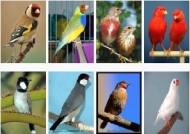 The International Community of Aviculture |
 |
 la Communauté internationale d'Aviculture |
| Home | Forums | ICA Arabic | ICA Arabic Community | Rules | Contact us |  |
 |
 |
 |
 |
 |
|---|
| It is currently Fri Jul 18, 2025 11:07 pm |
|
• All times are UTC |
 
|
Page 1 of 1 |
[ 10 posts ] |
|
| Author | Message | |||||
|---|---|---|---|---|---|---|
| Mohammed Alvhmawi |
|
|||||
Joined: 16 Jul 2011 Posts: 72 Topics: 71 Location: Jordan Gender: |
|
|||||
| Breeder: Canary | ||||||
| Aliskander |
|
||
|
Joined: 07 Oct 2011 Posts: 34 Topics: 31 Location: Spain Gender: |
|
||
| Breeder: Canary: Red and Yellow. | |||
| Mohammed Alvhmawi |
|
|||||
Joined: 16 Jul 2011 Posts: 72 Topics: 71 Location: Jordan Gender: |
|
|||||
| Breeder: Canary | ||||||
| Aliskander |
|
||
|
Joined: 07 Oct 2011 Posts: 34 Topics: 31 Location: Spain Gender: |
|
||
| Breeder: Canary: Red and Yellow. | |||
| Mohammed Alvhmawi |
|
|||||
Joined: 16 Jul 2011 Posts: 72 Topics: 71 Location: Jordan Gender: |
|
|||||
| Breeder: Canary | ||||||
| Abu Suhaib |
|
||||||
Joined: 11 Jul 2011 Age: 52 Posts: 137 Topics: 137 Location: USA Gender: |
|
||||||
| Breeder: Canary | |||||||
| Abdo Abu Seir |
|
|||||||
Joined: 20 Jan 2008 Age: 56 Posts: 172 Topics: 103 Location: Palestine Gender: |
|
|||||||
| Breeder: canaries | ||||||||
| Aliskander |
|
||
|
Joined: 07 Oct 2011 Posts: 34 Topics: 31 Location: Spain Gender: |
|
||
| Breeder: Canary: Red and Yellow. | |||
| Mohammed Alvhmawi |
|
|||||
Joined: 16 Jul 2011 Posts: 72 Topics: 71 Location: Jordan Gender: |
|
|||||
| Breeder: Canary | ||||||
| Abu Suhaib |
|
||||||
Joined: 11 Jul 2011 Age: 52 Posts: 137 Topics: 137 Location: USA Gender: |
|
||||||
| Breeder: Canary | |||||||
 
|
Page 1 of 1 |
[ 10 posts ] |
|
• All times are UTC |
Who is online |
Users browsing this forum: No registered users and 10 guests |
| You cannot post new topics in this forum You cannot reply to topics in this forum You cannot edit your posts in this forum You cannot delete your posts in this forum You cannot post attachments in this forum |
The International Community of Aviculture
ICA© 2014 : All rights reserved
Contact us
Best viewed more than 1024*768 pixels
ICA© 2014 : All rights reserved
Contact us
Best viewed more than 1024*768 pixels










